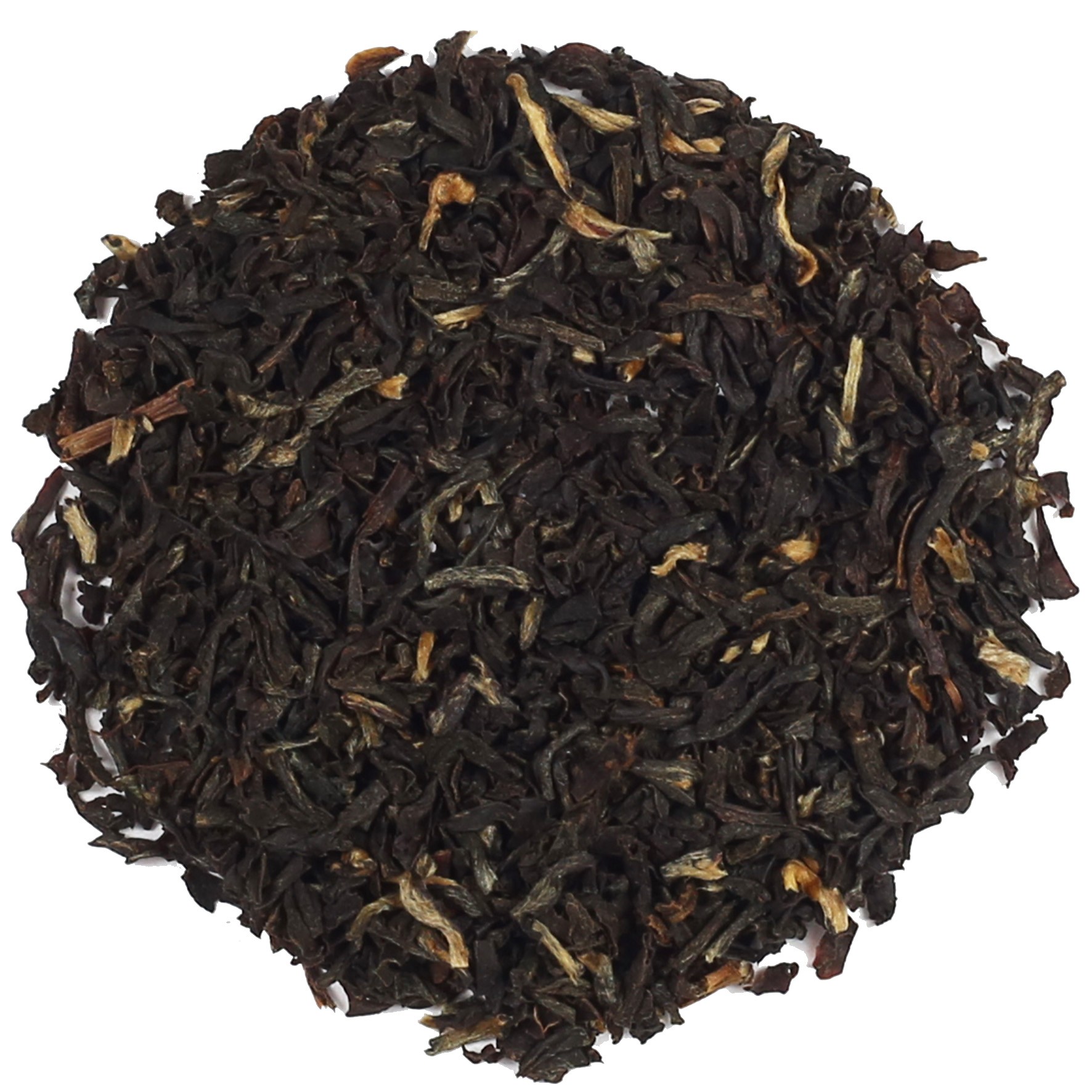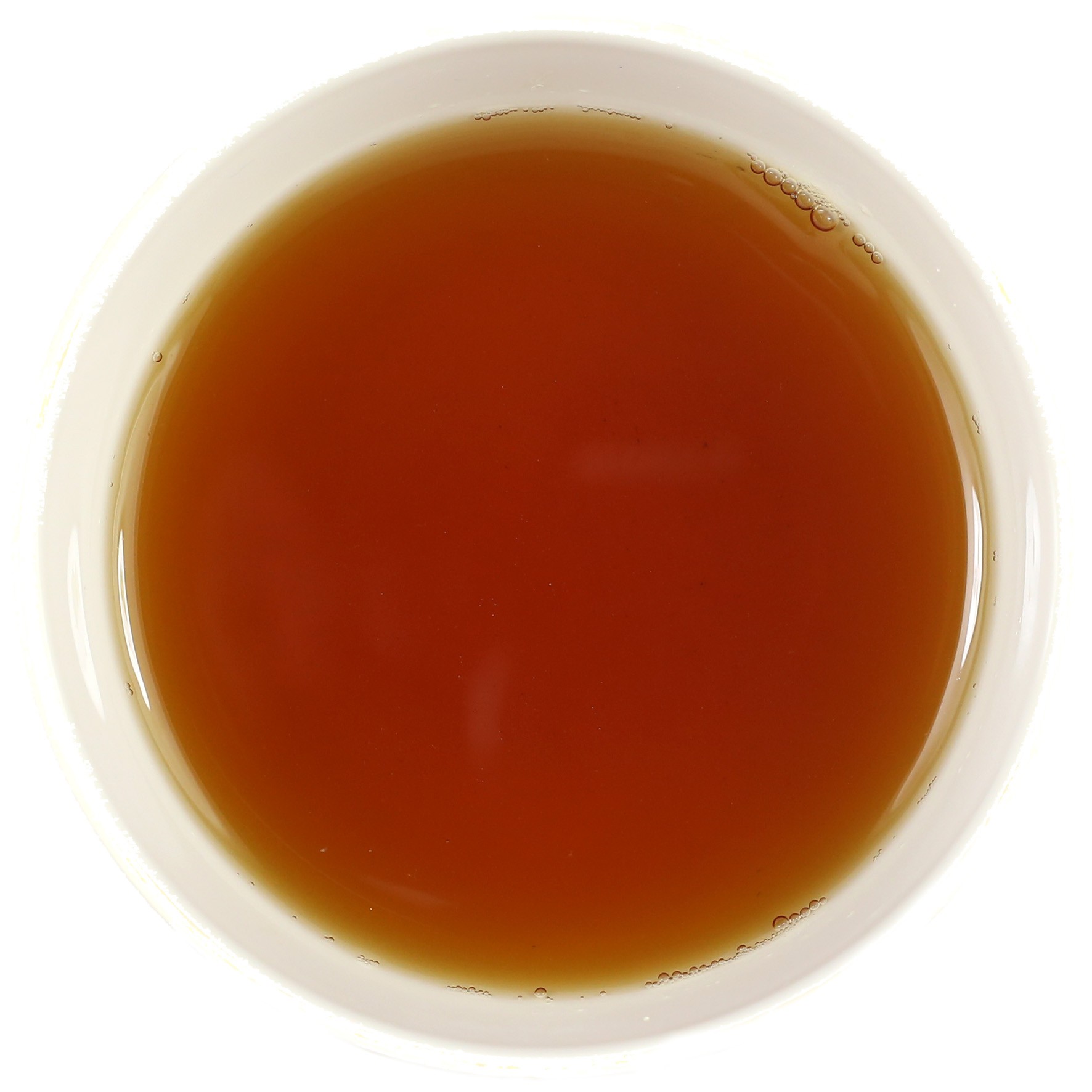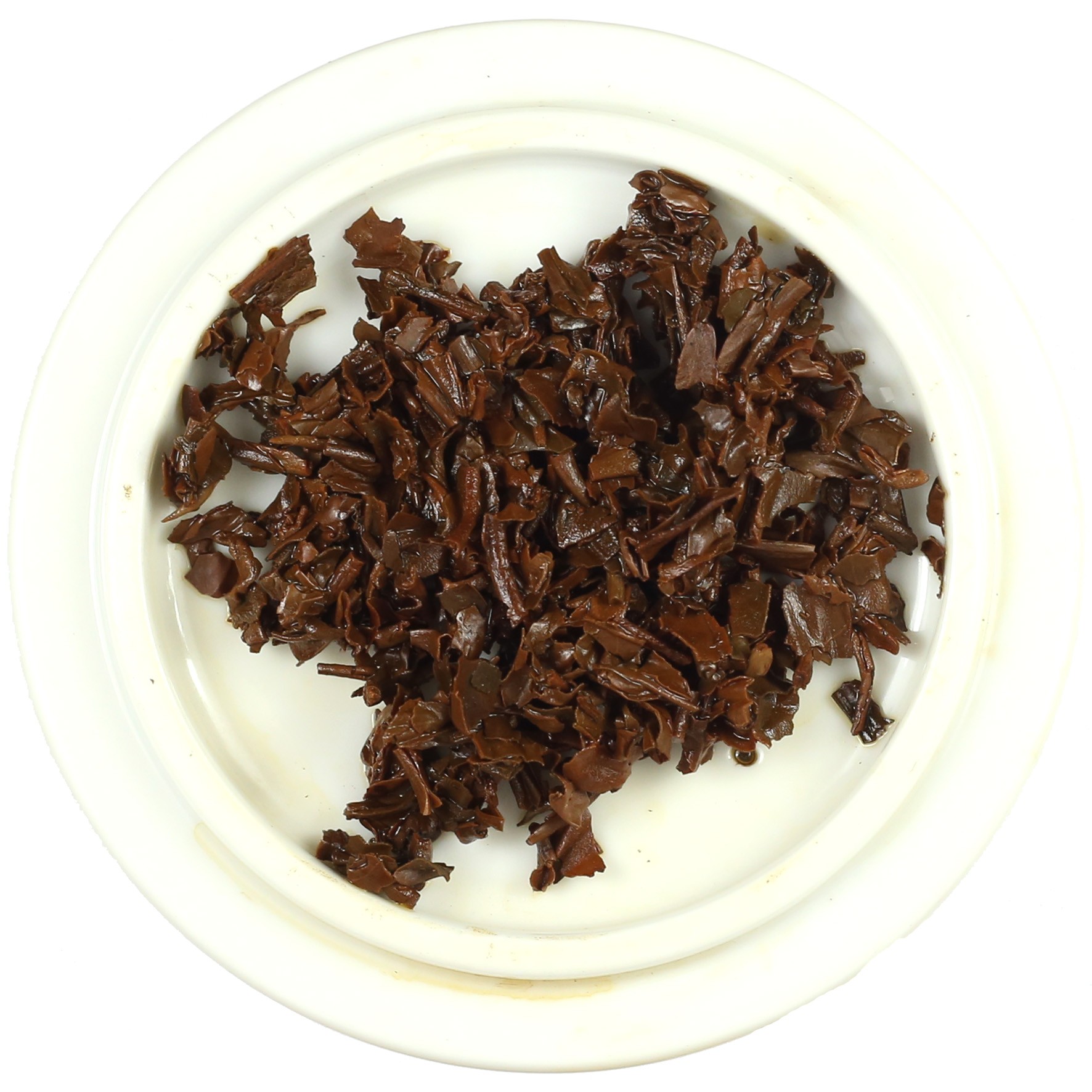Black Tea Brewing Guide

1 Teaspoon
Add 1 teaspoon per person and one for the pot.

95⁰c - 100⁰c
Boil using fresh water, at a temperature of 95⁰ - 100⁰c.

3 - 5 Mins
Steep for 3-5 minutes, depending on personal preference
About Product
-
Product Description
The Hathikuli Estate has long history with the Smith’s; Back in the 1950’s Mr Stammers used to take the family out on day trips via elephant to visit the Hathikuli Estate’s Manager, who was a good friends of the Family as they only lived 20 miles away from the Behora Estate. Janet Smith, the daughter of Mr Stammers says that she remembers sitting on the bungalow’s veranda and watching animals such as Tigers and Rhinos from the Kaziranga National Park. The name ‘Hathikuli’ drives from the Assamese word for ‘Frequent Elephant’, which translates into a place that is frequently visited by elephants. Adjoining the Kaziranga National Park, the site falls into two districts; Golaghat & Karbi-Anglong and produces Organic Green Tea, Orthodix Tea and CTC.
Type of Tea– Black Indian Orthodox Leaf.
Origin– Golaghat, Hatikhuli, Assam, India.
Altitude– 237 feet above sea level.
Leaf Grade– Tippy Golden Broken Orange Pekoe.
Brewing Guide– Use boiling water (100 degrees) Infuse for 3-5 minutes
How to Serve– Traditionally served with milk but worthwhile trying without milk to get that full of flavour experience.
Tasting Notes– Aromas of sweet honey with a malty, smooth notes and a delicately astringent finish.
Colour in Cup– A light copper liquor.
Pack sizes available– 50g, 125g, 250g, 500g, 1 Kilo. ( We pack everything fresh to order, nothing is off the shelf ! ). We pack all our teas in a unique material which combines card and foil, regarded as the best for retaining freshness and quality.
Storage– Airtight container away from strong smells and direct sunlight. Health Benefits- Rich in anti-oxidants, which is anti-ageing in nature and rich in flavonoids. Tea is an enhanced source of fluroides, which reduces blood cholesterol and blood pressure while regular consumption boosts immune system and metabolic rate, thereby reducing obesity and keeps heart healthy.
Advice on tea you might like– Assam Tarajulie Tea FBOP 2nd Flush or Assam Tonganagaon GBOP Organic
History– Due to the closeness of the Kaziranga National Park which is a World Heritage Site the Estate made the decision to go Organic in 2007, but wasn’t completed until 2011. The organic status of the Estate has led to an increase of natural predators that feast on various pests that may blight the Tea plant. The transformation to organic has even increased the soil structure and the number of earth worms in the Estate’s soil, compared to other estates has increased- allowing for richer soil.
-
Delivery Information
We offer reliable delivery services through Royal Mail to ensure that your orders reach you on time.
Here are the main points you should be aware of:
- Standard UK Delivery: £3.95 excluding delivery charge.
- Delivery Times: Orders are processed and dispatched within 2-5 working days but they may take longer during busy times. It is worth noting that all our orders are packed by hand in order to maintain the quality.
- Free Delivery: We are delighted to provide free shipping for UK orders over £35*. Moreover, customers from Europe can enjoy free shipping for any purchase above €75*. Furthermore, we offer free delivery in the USA for all purchases exceeding $125*. Please note terms and conditions may apply.
- Tracking: When your package is sent you will receive a tracking number via email so as to keep tabs of its progress.
International Shipping
We do ship worldwide meaning our products can be accessed by anyone around the world.
Here are some important details:
- Delivery Times: International deliveries vary based on destination, generally taking between 7-14 working days.
- Shipping Costs: International shipping costs are calculated at checkout based on your location and weight of your order. View full delivery charges for your location.
- Customs and Import Duties: Remember customs or import duties may exist depending on regulations in your country; these charges are borne by the customer.
Returns Policy
Your satisfaction is our top priority, however if for any reasons you’re not completely happy with your purchase, simply follow our returns procedure:
- Eligibility: Items returned within 30 days of receipt must remain unopened and in their original condition.
- Process: In order to return an item contact our customer service department using your unique order number after which detailed instructions will be given concerning returning them back to us securely.
- Refunds: Our aim is to refund you within 5-7 working days upon successful reception of returned goods. The refund amount will be credited to your original payment method.
For any other Enquiries or help please contact our Customer Support Team always at your service.
-
Product Reviews

 Loose Leaf Tea
Loose Leaf Tea Pyramids
Pyramids Tea Bags
Tea Bags Africa
Africa Assam
Assam Ceylon
Ceylon Chinese
Chinese Darjeeling
Darjeeling European
European Indian
Indian Japan
Japan Nepal
Nepal South East Asia
South East Asia Ayurveda Tea
Ayurveda Tea Black Tea
Black Tea Chai Tea
Chai Tea Flowering Tea
Flowering Tea Fruit Tisanes
Fruit Tisanes Green Tea
Green Tea Herbal Tea
Herbal Tea Matcha Tea
Matcha Tea Oolong Tea
Oolong Tea Organic Tea
Organic Tea Pu erh Tea
Pu erh Tea Rooibos Tea
Rooibos Tea White Tea
White Tea Asian Coffee
Asian Coffee Caribbean Coffee
Caribbean Coffee Central American Coffee
Central American Coffee South American Coffee
South American Coffee Coffee Blends
Coffee Blends Decaffeinated Coffee
Decaffeinated Coffee Espresso Coffee
Espresso Coffee Ethically Sourced Coffee
Ethically Sourced Coffee Flavoured Coffee
Flavoured Coffee Organic Coffee
Organic Coffee Single Origin Coffee
Single Origin Coffee Chocolate 1
Chocolate 1 Chocolate 2
Chocolate 2 Chocolate 3
Chocolate 3 Chocolate 4
Chocolate 4 Chocolate 5
Chocolate 5 Chocolate 6
Chocolate 6 Chocolate 7
Chocolate 7 Chocolate 8
Chocolate 8 Chocolate 9
Chocolate 9 Loose Tea Filters
Loose Tea Filters Tea Accessories
Tea Accessories Tea Bricks
Tea Bricks Tea Caddies
Tea Caddies Tea Caddy Spoons
Tea Caddy Spoons Tea Gift Ideas
Tea Gift Ideas Tea Infusers
Tea Infusers Tea Strainers
Tea Strainers




